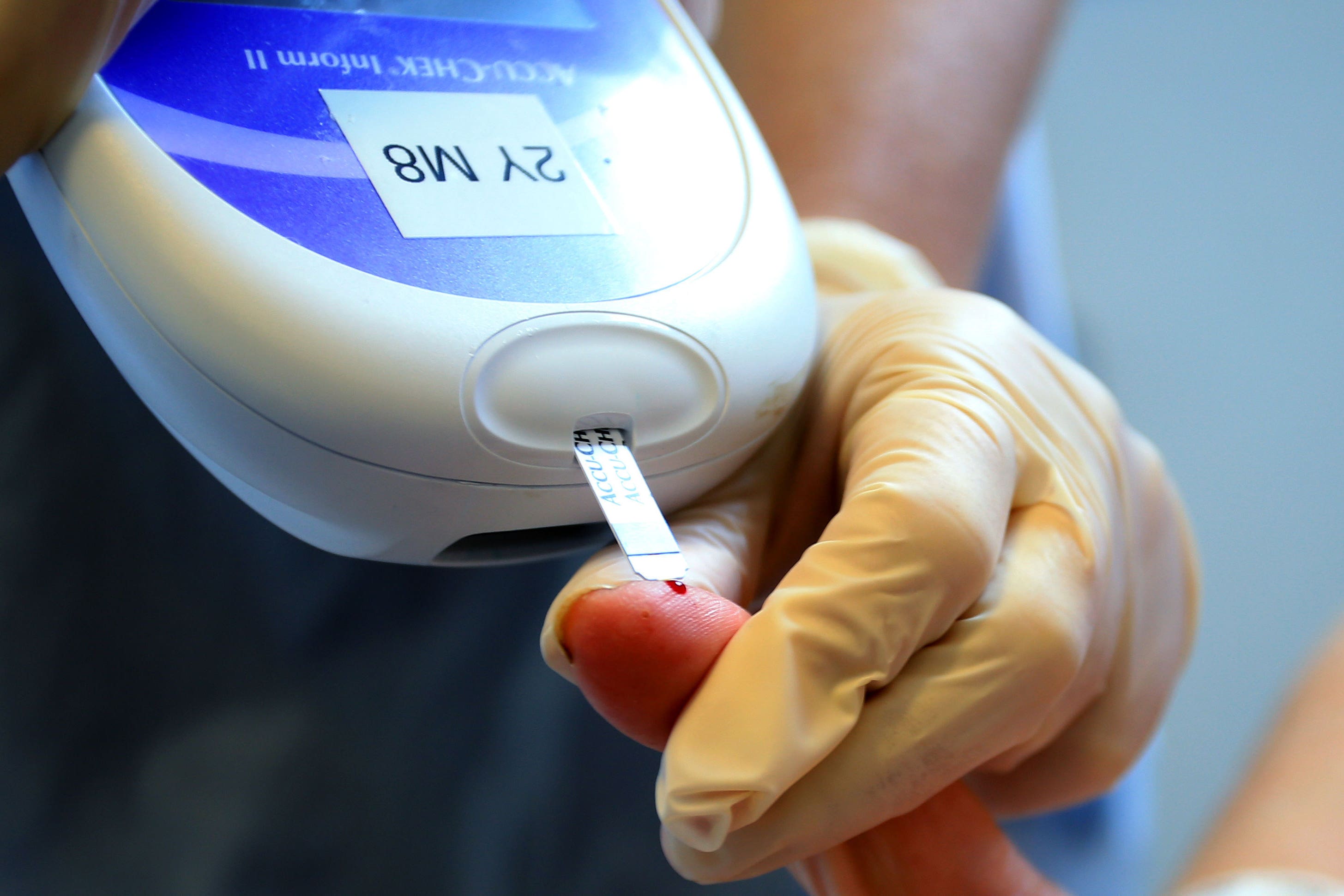AI and 10 seconds of voice recording can screen for diabetes, study suggests
Scientists used six to 10 seconds of people’s voice, along with basic health data, including age, sex, height, and weight, to create an AI model.

Whether or not somebody has diabetes could be determined by them speaking into a smartphone, researchers say.
The new study, which combines voice technology with artificial intelligence (AI), could be a major step forward in the detection of the disease, experts suggest.
Scientists used six to 10 seconds of people’s voice, along with basic health data, including age, sex, height and weight, to create an AI model that can distinguish whether someone has type 2 diabetes.
Our research highlights significant vocal variations between individuals with and without type 2 diabetes
According to the findings of the small study, published in Mayo Clinic Proceedings: Digital Health, the model has 89% accuracy for women and 86% for men.
Jaycee Kaufman, first author of the paper and research scientist at Klick Labs, said: “Our research highlights significant vocal variations between individuals with and without type 2 diabetes and could transform how the medical community screens for diabetes.
“Current methods of detection can require a lot of time, travel, and cost. Voice technology has the potential to remove these barriers entirely.”
For the study, Klick Labs researchers – part of Klick Applied Sciences, a team of data scientists, engineers and biological scientists that conducts scientific research and develops AI solutions – asked 267 people (diagnosed as either non- or Type 2 diabetic) to record a phrase into their smartphone six times a day for two weeks.
The scientists analysed more than 18,000 recordings and 14 acoustic features for differences between those who had diabetes and those who did not.
They looked at a number of vocal features, like changes in pitch and intensity that cannot be perceived by the human ear.
Voice technology could revolutionise healthcare practices as an accessible and affordable digital screening tool
The researchers were able to detect changes in the voice linked to type 2 diabetes and found that the vocal changes manifested in different ways for men and women.
Yan Fossat, vice president of Klick Labs and principal investigator of this study, said the non-intrusive and accessible approach offers the potential to screen vast numbers of people and help identify the large percentage of people who have undiagnosed type 2 diabetes.
He said: “Voice technology could revolutionise healthcare practices as an accessible and affordable digital screening tool.”
Researchers say the next steps will be to replicate the study and expand the study using voice as a diagnostic in other areas such as prediabetes, women’s health and high blood pressure.